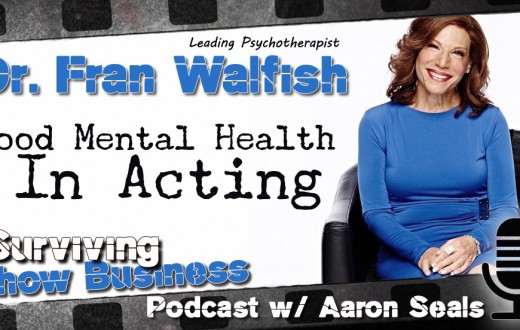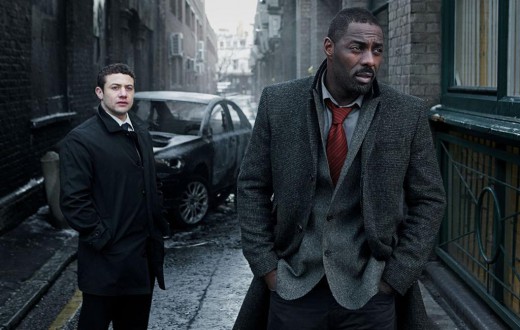We all know the feeling. Every actor who has ever set foot on stage or stood in front of a camera, no matter how big a star they are, no matter how talented they are, every single one of us has or will at some point face it, that ugly, ugly word: rejection.
Even the word itself has an ugly sound, doesn’t it? That hard “j” sound followed so quickly by the crack of the “eck” sound. It’s like a mousetrap snapping shut.
But here’s the thing about being rejected in the world of acting: you should learn to embrace it. And for younger actors, it’s important to embrace it early on, not only because it is simply a part of the process, but also because there are always valuable lessons to be learned. Here are few ways to turn around your mindset on being rejected!
1. Developing a Sense of Perspective
Being rejected in the real world out there among the civilians is one thing. If your crush gives you that “Eww, I just smelled something awful” look when you finally break down and make your feelings known, that’s horrible, of course. But being rejected in the world of acting is actually something that can help you understand a variety of perspectives – which is in itself a useful tool for acting (hint, hint). Here’s the thing: you’re not seeing the whole picture. When you go to audition, you only see the world from inside your brain; you’re seeing the time you spent learning the sides, working the scene, developing an action and delving into the few vague outlines of a character you were given. What you’re not seeing when you walk into that audition room are the dozens or even hundreds of other actors this casting director has already seen. You’re not seeing the changing needs of the production, nor the inevitable infighting among the members of the production team over what direction to take the piece and the individual characters. Oftentimes once one role gets cast, it means that the requirements for the other roles can change, sometimes drastically. Think about the insanely glorious (and often just plain insane) show “Legion” starring Dan Stevens of “Downton Abbey” fame. The role of his sidekick/muse/friend/monster Lenny, which has so brilliantly been inhabited by Aubrey Plaza, was originally written as a middle-aged man. Now, granted that is quite an unusual shift. But it illustrates that any production, even multi-million dollar, high-profile Marvel properties are still in a very fluid phase as they are being cast.
The other piece of the perspective puzzle to keep in mind is that, if you are reading this, you are a professional, or you are striving to be. You are auditioning for professional-level roles in professional-level productions. That is something to be proud of, naturally; acting is a noble profession and we should all be grateful to be part of it. But what it also means is that the people making the decisions are also professionals. They have to do what they collectively think is best for the production. So getting rejected should never, and I mean NEVER be taken personally. Far too many less-experienced actors get caught up in whether CDs “like” them, or they spend endless hours obsessing over having “said the wrong thing,” or having told a dumb joke that fell flat in the audition room – as if that was the ONE THING that caused them not to get cast. It isn’t. It isn’t personal. It never is. You must develop a thicker skin, and a sense that this is a business, and in business some things work out, and some don’t. It’s not the end of the world, and it’s not always about you.
2. Statistical Anomaly
The thing about being rejected in the world of acting is it’s not only common, it’s going to happen the MAJORITY of the time. Like, a BIG majority of the time. This is hard to understand sometimes, especially when you’re just getting started. But it’s even hard to keep in mind for veterans when it comes to that one role you REALLY want. But remember, there are veterans in the business who cite the figure of one in 20 for the average of getting cast versus auditions you go on. Some say one in 30 is more accurate. That means your average “score” for getting cast is far below even that of a terrible baseball player. It means you are a big success if you get cast even 5 percent of the time. That’s a baseball player hitting .050, for those of you keeping score at home! So if you are getting upset when you don’t get cast through two or three auditions in a row, you’re frankly treading on delusional territory. You cannot get cast every time, or even every other time, not consistently. It just doesn’t work that way, not even if you are in a small market. Like they say in sales, each “no” gets you closer to that “yes.” The only failure is getting discouraged and giving up. Hold your head high, take the phone call telling you “no” with grace and class, express the hope that you will get to work with that production team at some point in the future, and get to work on your next audition. This is the job, in many ways. Get used to it, and find the joy and fun in every audition without getting too worked up about getting cast or not, because as a professional, there will always be another one right around the corner.
3. What Doesn’t Kill You…
…makes you stronger. You know that phrase. Your evil gym coach from 6th grade yelled it while you were about to puke from running laps. Well, it may be trite, but it’s true: the more running you do, the better your lungs and legs develop, and thus the better you get at running. Going through adversity does make you stronger. That’s a crucial part of the audition equation that often slips between the cracks: every time you audition, you walk out of there – or you should – with a greater knowledge of auditioning, no matter the result. In fact, many veteran actors will tell you they learn MORE from the times they didn’t get cast than from the times they did. Not getting cast doesn’t mean you “failed” at the audition, not by a long shot. These things are determined by any number of factors and various opinions of various people. It’s just not on you most of the time, whether you get the role or not. What is on you, 100 percent, is how you prepare, how you present yourself, and how you deal with the experience afterward. To that end, an honest assessment is vital in order to process the audition. Whether alone or with a friend, go over what happened, what went right, what went wrong, and what you would do different. Taking notes right after you audition is a great way to put your thoughts and soaring emotions in some kind of order. Assess, take what you need from assessment – “I didn’t get enough sleep last night,” or “next time I’ll work harder on memorizing,” or “I didn’t feel 100 percent about my objective,” – and then put it away. And go prepare for your next audition, that much more in touch with yourself and what YOU need to do for you to nail it. These are the things you can control; forget about everything else.
4. Perseverance
Aside from the statistically insignificant handful of actors who were plucked out of obscurity to become huge stars, every successful actor will tell you that their success comes not primarily from talent or looks but from hard work. It takes patience, it takes dedication, and those qualities are hard to come by when all you want is to succeed RIGHT NOW. Of course you do! We all need and want to get to work on a million challenging and interesting projects right this very second because we love acting so much. But it’s important to remember that acting is a lifelong road, and one that you travel one step at a time. Those who succeed are those who understand that wherever they are, that’s right where they’re supposed to be. That’s because there is always something you can learn from that place and the people who surround you there. There is no shortcut; you just have to stick with it, take one step at a time, and turn up for the next audition, the next class, the next show or role. And slowly, but surely, you will build a career. Take risks, take chances and above all, be open to learning. If you do those things, you’ve already turned your rejections into success!







